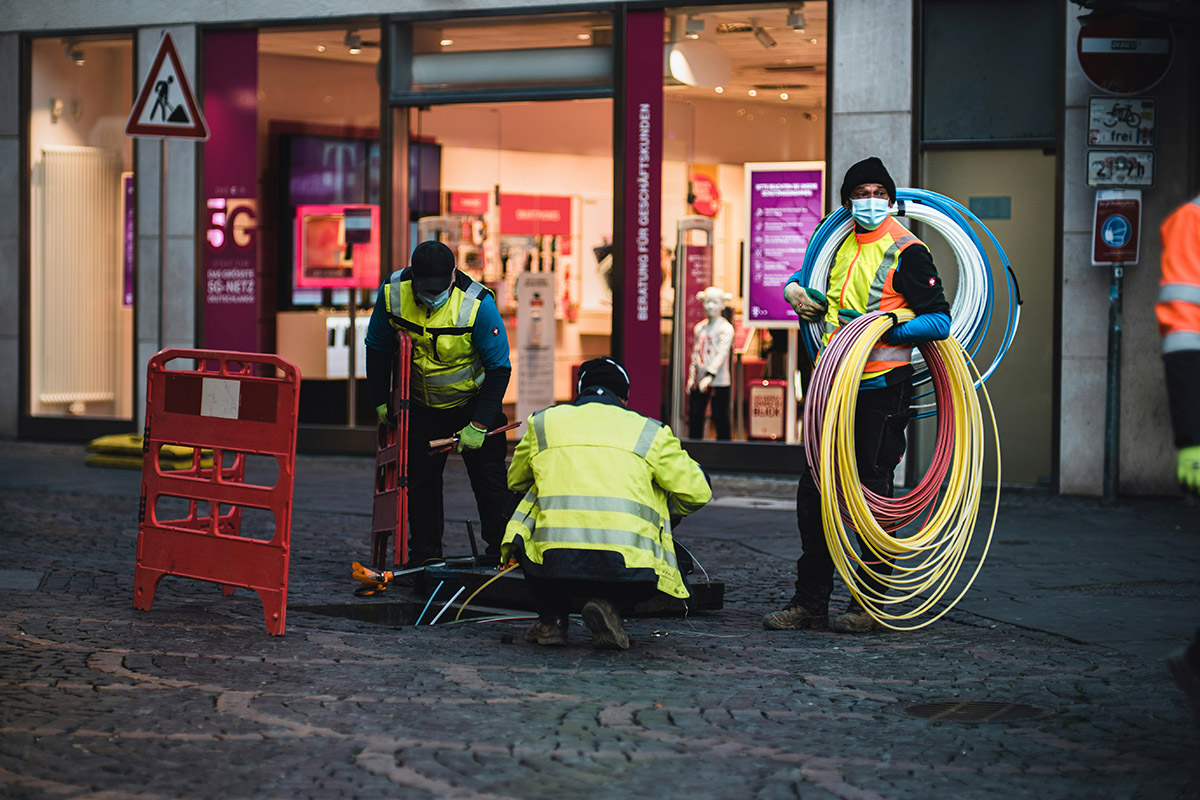Understanding Leased Lines
Internet connectivity is the backbone of modern business operations, so ensuring that your connection is not just fast but also reliable and consistent is crucial.
This can be a significant issue for businesses in rural areas, such as Suffolk, where network infrastructure is limited and broadband speeds are slow. This is where Leased Lines can be a lifeline.
So What is a Leased Line?
A leased line, sometimes referred to as a private circuit, is a dedicated telecommunication line that provides a direct, continuous connection between the customer premises and the exchange. Unlike standard broadband services that share bandwidth with other users, a leased line offers exclusive access to the bandwidth, ensuring consistent speeds and a stable connection.
How Does It Work?
A leased line essentially “leases” a fixed amount of bandwidth exclusively for a business or organisation’s use. This dedicated line can be used for various purposes, including:
Internet Access: Provides a steady and reliable internet connection, crucial for businesses that rely on online operations.
- Voice and Data Traffic: Supports VoIP (Voice over Internet Protocol) services, making it easier to manage voice and data traffic efficiently.
Private Networking: Connects different branches of a business securely over long distances, enabling seamless communication and data sharing.
Key Benefits of a Leased Line
- Ultra-fast: Leased lines can offer high speed internet connectivity, with options ranging from 10 Mbps to 10 Gbps. This is far greater than what can normally be achieved using traditional broadband circuits.
Consistent Speed: Since the bandwidth is not shared with other users, leased lines offer stable and consistent speeds, essential for businesses with high data demands.
Low Latency: Ideal for real-time applications such as video conferencing, VoIP, and things like online gaming.
Reliability: Leased lines come with robust Service Level Agreements (SLAs) that guarantee uptime and quick resolution of any issues.
Security: Provides a secure connection, reducing the risk of data breaches and ensuring compliance with data protection regulations.
Scalability: Can be easily upgraded to accommodate growing business needs without significant downtime or disruptions.
Use Cases for Leased Lines
- Rural Settings: Where conventional options may fall short, leased lines provide a lifeline, offering consistent, high-speed connectivity that can support businesses of any size.
Corporate Offices: For seamless communication between headquarters and branches.
Data Centers: To ensure uninterrupted data transfer and storage solutions.
ISPs and Hosting Providers: For delivering high-quality internet services to customers.
Financial Institutions: For secure and real-time transactions and data exchanges.
A leased line is more than just a dedicated connection; it’s an investment in reliability, security, and performance. For businesses that depend on consistent and robust connectivity, a leased line offers the peace of mind that comes with knowing their operations won’t be interrupted by bandwidth issues or unstable connections.
In a world where downtime can translate into significant financial loss, the importance of a reliable leased line cannot be overstated.
If your business is grappling with connectivity issues, considering a leased line might just be the solution you need to ensure smooth and efficient operations.








